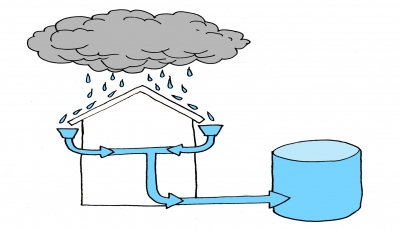Comprehensive Solutions for Industrial Waste Water Treatment by Reclaim Waste Melbourne
Comprehensive Solutions for Industrial Waste Water Treatment by Reclaim Waste Melbourne
Blog Article
Fostering Resource Effectiveness and Environmental Protection Through Fluid Waste Elimination Programs
In the world of ecological stewardship, the administration of fluid waste stands as a vital point where source efficiency and ecological security merge. Via a lens of aggressive interaction and calculated foresight, the landscape of fluid waste monitoring reveals a tapestry of difficulties and possibilities that beckon us to discover the course towards a greener and more lasting future.
Relevance of Fluid Waste Removal
The value of liquid waste elimination hinges on its vital function in protecting environmental health and wellness and securing public health. Fluid waste, if not correctly handled, can present significant risks to environments, water sources, and human health and wellness. Through reliable elimination processes, dangerous materials such as microorganisms, chemicals, and toxins are protected against from contaminating the setting and creating damaging results.
Appropriate liquid waste removal likewise aids in avoiding the spread of conditions and lowering the potential for groundwater contamination. By securely dealing with liquid waste, the danger of waterborne health problems and pollution-related health concerns is dramatically reduced - Reclaim Waste. Furthermore, reliable elimination techniques add to preserving the total tidiness and aesthetics of neighborhoods, thereby enhancing the high quality of life for citizens
Furthermore, fluid waste elimination plays a vital duty in supporting lasting advancement and making certain compliance with ecological laws. By sticking to appropriate waste administration markets, services and protocols can lower their ecological impact and demonstrate company obligation. Ultimately, investing in robust fluid waste elimination programs is important for promoting ecological stewardship and promoting a much healthier, much safer future for all.

Benefits of Efficient Disposal
Effective disposal of fluid waste not just safeguards environmental wellness and public well-being yet also yields numerous benefits that extend beyond immediate control procedures. Through processes like recycling and power recuperation, important resources can be removed from fluid waste, promoting sustainability and decreasing the stress on raw products. In general, the benefits of efficient liquid waste disposal are multifaceted, including environmental defense, resource effectiveness, and financial benefits.
Technologies for Waste Treatment
Using innovative innovations for waste therapy plays a critical function in guaranteeing the reliable management and risk-free disposal of fluid waste. One of the essential innovations utilized in fluid waste treatment is biological therapy. This method makes use of microorganisms to damage down raw material in the waste, transforming it into safe results. One more common innovation is chemical therapy, where chemicals are included to the waste to neutralize unsafe parts or precipitate pollutants for removal. Physical therapy methods, such as filtering and sedimentation, are likewise extensively utilized to divide solids from liquid waste.
Furthermore, thermal therapy techniques such as incineration can be used for the full devastation of harmful parts in liquid waste. Overall, the combination of diverse treatment innovations makes sure comprehensive and environmentally pleasant administration of fluid waste.
Duty of Laws and Compliance
In the realm of liquid waste management, adherence to regulative structures and compliance criteria is critical for securing ecological health and sustainability. Laws play a critical function in controling the appropriate handling, therapy, and disposal of liquid waste to stop injury to environments and human health and wellness. By establishing clear standards check and standards, read the full info here governing bodies ensure that companies and people associated with liquid waste monitoring operate in an environmentally accountable fashion.
Conformity with these policies is not only a legal requirement but additionally an ethical obligation to safeguard the setting for current and future generations. It involves executing ideal methods in waste collection, transportation, disposal, and treatment to decrease ecological impact and advertise resource performance. Non-compliance can cause fines, lawful action, and reputational damage for companies, highlighting the relevance of supporting regulatory requirements.

Future Trends in Waste Management

One more vital trend in waste monitoring is the fostering of innovative data analytics and fabricated knowledge to optimize waste collection paths, enhance sorting procedures, and boost general functional effectiveness. These modern technologies enable waste monitoring companies to make data-driven decisions, resulting in cost financial savings and ecological benefits.
Additionally, there is a growing focus on the growth of decentralized waste monitoring systems, such as onsite treatment centers and mobile waste handling units. These systems provide flexibility and scalability, permitting for much more reliable waste handling in varied environments.
Conclusion
Finally, promoting source effectiveness and environmental defense via liquid waste elimination programs is important for sustainable development. Reliable disposal approaches, progressed innovations for waste therapy, and rigorous laws play essential functions in lessening ecological impact. Looking ahead, constant technology and renovation in waste management techniques will certainly be necessary for resolving the growing obstacles of liquid visit here garbage disposal.
In the realm of environmental stewardship, the monitoring of liquid waste stands as a crucial time where resource effectiveness and environmental security merge (Liquid waste removal).Using sophisticated modern technologies for waste therapy plays an essential function in making sure the effective management and risk-free disposal of fluid waste.In the world of fluid waste management, adherence to governing structures and conformity requirements is extremely important for safeguarding ecological health and sustainability.In final thought, promoting resource efficiency and environmental security via fluid waste elimination programs is crucial for sustainable growth. Looking in advance, continuous innovation and improvement in waste monitoring practices will certainly be necessary for dealing with the growing difficulties of fluid waste disposal
Report this page